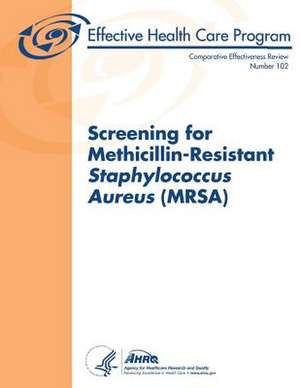Screening for Methicillin-Resistant Staphylococcus Aureus (Mrsa)
Autor U. S. Department of Heal Human Services, Agency for Healthcare Resea And Qualityen Limba Engleză Paperback
Preț: 148.56 lei
Preț vechi: 156.39 lei
-5% Nou
Puncte Express: 223
Preț estimativ în valută:
28.44€ • 30.90$ • 23.90£
28.44€ • 30.90$ • 23.90£
Carte indisponibilă temporar
Doresc să fiu notificat când acest titlu va fi disponibil:
Se trimite...
Preluare comenzi: 021 569.72.76
Specificații
ISBN-13: 9781491256442
ISBN-10: 1491256443
Pagini: 242
Dimensiuni: 216 x 279 x 13 mm
Greutate: 0.57 kg
Editura: CREATESPACE
ISBN-10: 1491256443
Pagini: 242
Dimensiuni: 216 x 279 x 13 mm
Greutate: 0.57 kg
Editura: CREATESPACE
